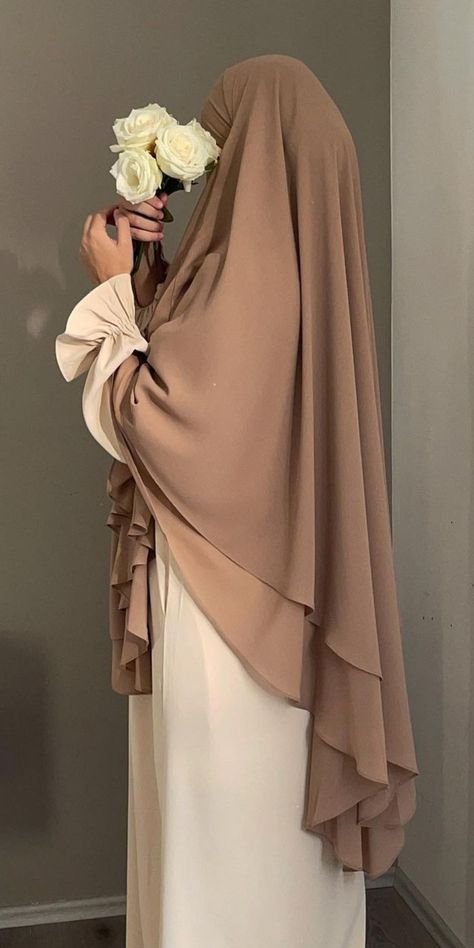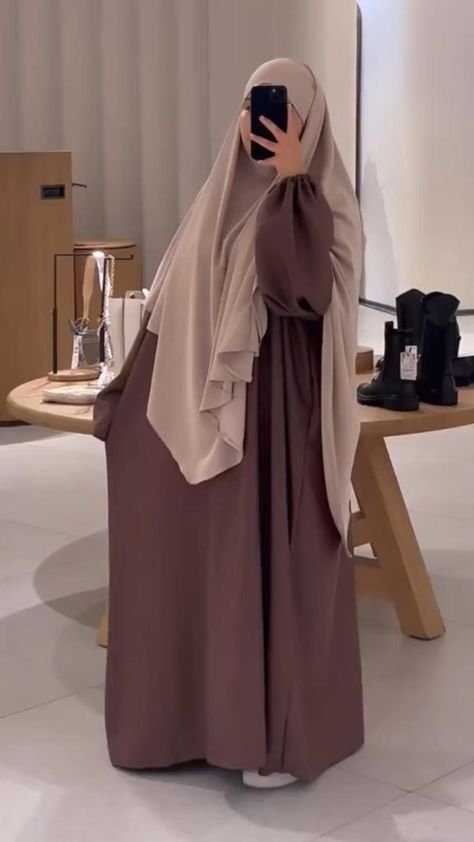
Over the years, the dress code among Muslim women, particularly the practice of wearing the hijab (head covering), has garnered significant attention and debate. Often viewed through a lens of controversy and sometimes misunderstood as a symbol of oppression, the hijab remains a focal point in discussions about women’s rights, especially outside the Muslim world. It is essential to understand that Islam is not the only religion to introduce the practice of covering the head; however, it continues to be at the center of many discussions. What are the rules for wearing a hijab, and why has it become such a pivotal topic?
The hijab represents the proper Islamic dress code, designed primarily to safeguard modesty, dignity, and honor for both men and women. Allah (SWT), the Creator, understands human nature better than anyone and has prescribed appropriate rules of wearing a hijabi, behavior, and appearance to be observed in social interactions. These rules of wearing a hijab include guidelines for modest dressing applicable to both genders. Is it obligatory to wear a hijab at all times, and who can a woman take her hijab off in front of? In this article To fully grasp the rules of wearing a hijab and the significance of the hijab, several key questions arise.
What are the Rules for Wearing a Hijab in Islam?
Here are 8 rules of wearing a hijab:
1. Comprehensive Coverage:
One of the rules of wearing a hijab is that the hijab should cover the entire body.
2. Non-Adorned:
It should not be an adornment in itself.
3. Opaque Material:
The fabric should be thick, not transparent or see-through.
4. Loose Fit:
It should be loose, not tight-fitting.it is one of the most important rules of wearing a hijab.
5. Scent-Free:
The hijab should not be perfumed.
6. Distinctive from Men’s Clothing:
According to the rules of wearing a hijab, It should not resemble the clothing of men.
7. Distinctive from Non-Muslim Women’s Clothing:
It should not imitate the dress of non-believing women.
8. Modesty Over Vanity:
The hijab should not be a garment of fame or vanity.
What is the Importance of Hijab in Islam?
The hijab is profoundly important in Islam as it embodies modesty, dignity, and respect. By abiding by the rules of wearing a hijab, it serves to protect women from unwanted attention and harassment, ensuring that interactions are based on character rather than appearance. The hijab is an expression of obedience to Allah’s commands and signifies a woman’s commitment to Islamic principles. It empowers women by emphasizing their value beyond physical appearance and reinforces their identity within the Muslim community. Additionally, it encourages men to practice restraint and modesty, fostering a respectful social environment. Overall, the hijab is a crucial aspect of Islamic practice that upholds modesty, spiritual commitment, and community solidarity. Additionally, it protects one’s spirituality against anything that will negatively impact one’s connection with Allah.
When can a Woman Take off her Hijab?
Here are some situations where a woman is allowed to take her hijab off :
At Home:
Muslim women are not required to wear a hijab while engaged in daily activities at home, such as sleeping or bathing. Within the sanctuary of their homes, they have the freedom to forgo their headscarves for personal comfort.
In the Presence of Mahram:
In the company of immediate family members, such as her husband, father, brother, son, or nephew, a woman can remove her hijab. This exception recognizes the profound familial bonds and the sense of security within these relationships.
Among Women:
When no unrelated men are present, Muslim women can remove their hijab in the company of other women, fostering a sense of sisterhood and relaxation.
With Family:
During meaningful family gatherings or intimate moments, a Muslim woman may choose to remove her headscarf, emphasizing familial bonds over strict modesty.
In Privacy:
Muslim women can remove their headscarves when alone in a room or within their own homes, preserving personal comfort and privacy.
Before Puberty:
Girls are not obliged to wear the hijab until they reach puberty. After reaching this milestone, girls may choose to wear the hijab as a sign of respect for family traditions.
During Prayer:
While Muslim women must cover their hair when not wearing the hijab, they may remove it after completing their prayers or when not engaged in prayer.
For Medical Reasons:
During essential medical examinations involving the head or scalp, Muslim women can temporarily remove their hijab.
To enhance your understanding of hijab and Islamic jurisprudence, we invite you to enroll in our programs at Sheikh Saleh Islamic Academy. Click [here](#) to learn more about our offerings. You can also explore our diverse range of courses [here](#) to expand your knowledge further. Join us and deepen your comprehension of Islamic teachings and practices.
Do you Have to wear a Hijab at All Times?

According to the rules of wearing a hijab mentioned in the Quran and hadith, a common misconception about the hijab is that it must be worn at all times. In reality, a woman is required to wear the hijab primarily when she is around men who are not her husband or close blood relatives (mahram). When a woman is in a public place or social setting where only other women are present, Islamic law does not require her to be covered. The hijab’s main purpose is to ensure modesty in mixed-gender environments, but it is not necessary in female-only settings.
Who Can I Take my Hijab off in front of?
-
In Front of Muslim Women
Many people wonder when it is permissible for a woman to remove her hijab. In the company of other Muslim women, who are considered sisters in faith, there is no requirement to wear a hijab. According to the rules of wearing a hijab, This allowance facilitates closer relationships and a sense of community among women, removing the barriers that the hijab might impose in such interactions. A woman can take off her hijab in the presence of other women as long as there are no men present who are not her mahram (close relatives whom she cannot marry).
-
In Front of Mahrams
According to Islamic principles, a woman is allowed to remove her hijab in the presence of certain immediate family members, such as her parents, grandparents, and children. These individuals are considered mahram, meaning the hijab is not required around them because they are already familiar with her, and her modesty is maintained within the family.
Read about:
- How to repent for drinking alcohol in Islam?
- Does Kissing Your Wife Break Fast? Understanding Islamic Fasting Rules
Is it Obligatory to Wear a Hijab in Islam?
Once a girl reaches the age of maturity, it becomes obligatory for her to wear the hijab and abide by the rules of wearing a hijab, as well as to fulfill the obligations and duties of Islam. The hijab is among the commands of Islamic law. When a person reaches the age of accountability, she is bound by the commands of Allah and will be rewarded for obeying His orders and punished for disobeying or violating them.
What Happens if You Don’t Wear a Hijab in Islam?
The hijab is a symbol of modesty, chastity, and purity, and it is also a command from Allah that a Muslim woman must adhere to and follow the rules of wearing a hijab, Here is the Punishment for not Wearing Hijab as stated in the Quran:
- “It is not for a believing man or a believing woman, when Allah and His Messenger have decreed a matter, that they should have any choice about their affair. And whoever disobeys Allah and His Messenger has certainly gone astray in clear error” (Surah Al-Ahzab, 33:36).
قال تعالى: وَمَا كَانَ لِمُؤمِنٍ وَلاَ مُؤْمِنَةٍ إِذَا قَضَى اللهُ وَرَسُولُهُ أَمْرًا أَنْ يَكُونَ لَهُمُ الخِيَرَةُ مِنْ أَمْرِهِمْ وَمَنْ يَعْصِ اللهَ وَرَسُولَهُ فَقَدْ ضَلَّ ضَلاَلاً مُبِينًا[النساء:]
Those who disobey Allah and fail to follow His commands or transgress His limits expose themselves to His punishment. As stated in the Quran:
- “And whoever disobeys Allah and His Messenger and transgresses His limits, He will put him into the Fire to abide eternally therein, and he will have a humiliating punishment” (Surah An-Nisa, 4:14).
قال تعالى: وَمَنْ يَعْصِ اللهَ وَرَسُولَهُ وَيَتَعَدَّ حُدُودَهُ يُدْخِلْهُ نَاراً خَالِدًا فِيهَا وَلَهُ عَذَابٌ مُهِينٌ[النساء:].
One of the consequences of not adhering to Allah’s commands, not following the rules of wearing a hijab and removing the hijab, thus exposing one’s modesty, is that she may be held in contempt by others and become a target for those with weak faith and corrupt hearts.
Read about:
How to Choose the Right Hijab for You?
Choosing the right hijab following the rules of wearing a hijab involves selecting a fabric that suits the climate and your comfort, such as lightweight cotton for warmer weather or thicker materials for cooler temperatures. Consider colors that complement your skin tone and style, and ensure the hijab provides proper coverage while being comfortable and according to the rules of wearing hijab. Different styles, like wraps or instant hijabs, should align with your face shape and personal preference, while practicality and ease of use are also important. For everyday wear, opt for simple and easy-to-maintain fabrics, while special occasions might call for more embellished options.
read about: Is Allah Omnipresent? the Definitive Evidence
What is the Purpose of Wearing the Hijab?
Islam mandates the hijab according to the proper rules of wearing a hijab for several important reasons.
According to Surah Al-Ahzab, verse 59, the purpose of the hijab is
“to be known and not be abused”
(ذَٰلِكَ أَدْنَىٰ أَنْ يُعْرَفْنَ فَلَا يُؤْذَيْنَ).
It is intended to protect believing women, uphold their modesty, and shield them from harassment by immoral individuals.
- Additionally, Allah states,
“That is purer for your hearts and their hearts”
(ذَلِكُمْ أَطْهَرُ لِقُلُوبِكُمْ وَقُلُوبِهِنَّ)
highlighting the connection between visual exposure and the heart’s desires. The hijab helps in controlling lustful gazes by ensuring that interactions between men and women are based on character and values rather than physical appearance. Thus, the hijab serves to protect women’s dignity, ensure fair treatment, and promote modesty and respect.
Read about:
when can a woman take off her hijab?
Can Men And Women Be Friends In Islam? 7 Rulings Must Know